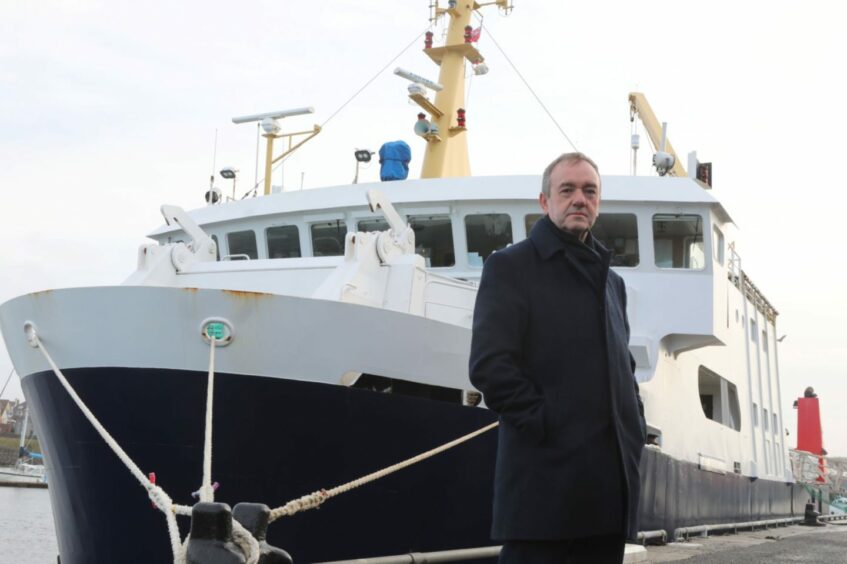Orkney councillors have given the green light to the first steps of a plan for investigating alternative governance models, following on from this summer’s media frenzy.
Orkney Islands Council’s policy and resources committee were presented with a new report on Tuesday morning, which gave an idea of how the council will carry out that investigation.
Councillors roundly lauded the plan. Councillor Rachael King called it “adult, measured [and] intelligent”.
The report followed the full council agreeing, on July 4, that the local authority should investigate a wide range of alternative governance models that could be for the county.
Frustrations over the council’s treatment by the UK and Scottish governments prompted the move, spearheaded with a motion from council leader James Stockan.
A complete lack of support in securing funding for new internal ferries has stood as a particular issue with the council in recent years.
The first steps in Orkney Islands Council’s investigation into alternative governance
A four-stage plan was presented to the committee, asking the councillors to give the green light for the first stage to get under way.
And approval was given.
The next steps will see a group within the council – the Constitutional Reform Consultative Group – overseeing a number of tasks being carried out.
While this group existed for a number of years and councillors had been assigned to it, the group hadn’t met since the formation of the new council.
This changed ahead of today’s meeting when it gathered on September 5.
The group is made up of council leader James Stockan, depute leader Heather Woodbridge, and convener Graham Bevan.
Interestingly, three of the six councillors who spoke out against the investigation are also on the consultative group.
Under the plan, the council will be making sure it is using powers and opportunities already open to it as it also starts to look at alternative governance models.
This will involve briefing other councillors on previous efforts to secure more autonomy such as in 2017.
The council will also look at whether it’s making use of powers under the Islands (Scotland) Act, and looking at how the council can communicate the contribution it makes to Scotland, the UK and the world.
Council to look at current opportunities before setting out new options for governance
They’ll also look at opportunities in the Single Isles Authority model and the proposed National care service.
And of course, they’ll get the ball rolling in terms of looking at alternative governance models.
As the council leader asked in his motion, they’ll look at “Nordic connections, crown dependencies, and other options for greater subsidiarity and autonomy”.
Sometime early next year a report will appear which specifically sets out some of the options for alternative governance.
Stages two and three of the plan will see the options narrowed down and include public consultation.
Stage four would be the delivery of the preferred option.
However, each of these stages will also have to gain approval further down the road.
Councillors endorse ‘slow and steady’ plan
Councillors were generally in favour of the plan, which was called “slow and steady” by councillor Leslie Manson.
However, concerns over the wider implications of embarking on the investigation do remain.
Councillor David Dawson said he was worried about the “unforeseen consequences” of what they’re doing.
He also cited the pressures on staff and money for the council, which has been lacking in both recently.
Councillor Dawson attempted to challenge a section of the plan, but this failed as it clashed with the original motion approved in July.
Mr Dawson had attempted to remove the obligation to look into crown dependencies, overseas territories, and Nordic connections from the plan.
In particular reference to the Nordic territories, he said “it could become a costly distraction luring us down the dark cul-de-sac of constitutional grief”.
He also said those parts of the investigation could possibly “strange what could potentially be valuable work”.
However, Mr Dawson’s amendment never made it to the vote.
As such, the first steps of the plan were unanimously approved by the committee.


Conversation